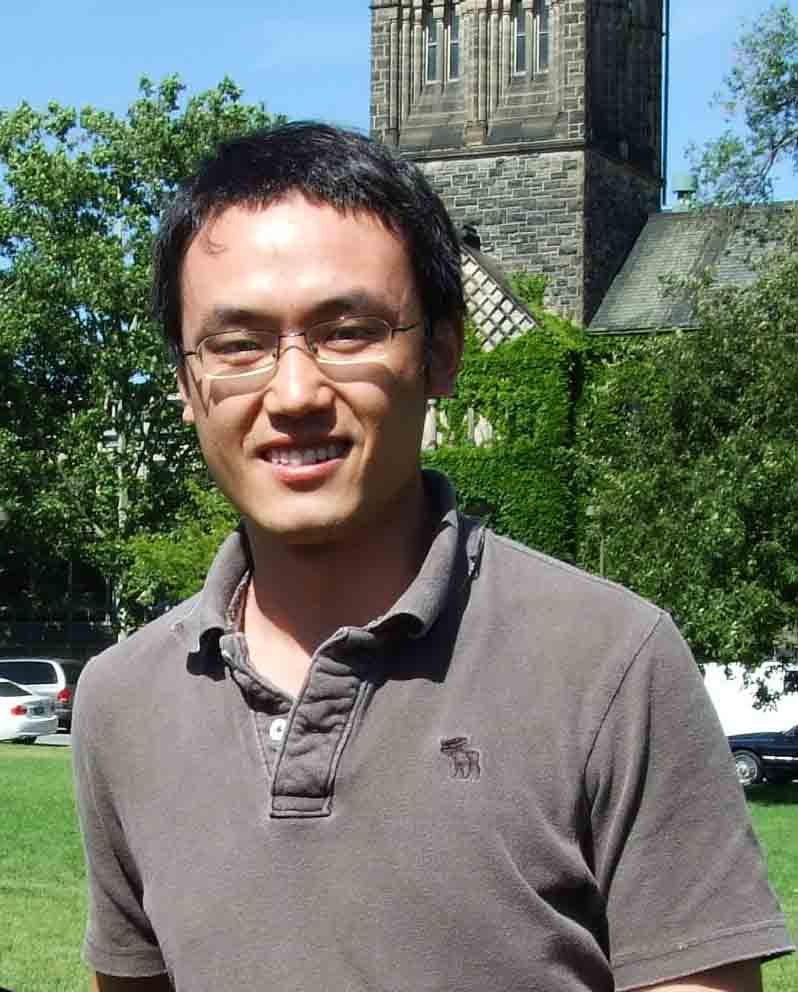Ming Xu
Georgia Institute of Technology, Post-Doctoral Associate
Arizona State University, Ph.D.
Francois Fiessinger Scholar 2008

Quantifying Solid Waste Generated by Economic ActivitiesProject Description (while EREF Scholar):
It is critical to understand how economic activities are shaping the environment. To this end, this research proposes to quantify the life-cycle environmental impacts, particularly solid waste, generated by the American economic system. Given the magnitude and tremendous dynamics of the U.S. economy, this research is able to help to understand the complex interaction between economic development and environmental sustainability for the U.S. A physical input monetary output (PIMO) model is proposed to investigate this complex relationship between environmental impacts (solid waste) and economic activities (consumption of products). Note that the theoretical model has been developed and tested partially supported by the Environmental Research and Education Foundation under the Francois Fiessinger Scholarship. In addition, solid waste generated by the U.S. economy is quantified to understand how economic activities affect environmental sustainability at the national scale. The results show that service sector in the U.S. economy has less direct impact on solid waste generation, but is the most critical driver if taking the life-cycle indirect impacts into account.
Biography:
Ming’s main research interest is environmental consequences of economic, social, and technological changes. Since 2003, he has been working on various research projects on related topics. Initially, he was interested in societal metabolism of economic systems by quantifying material consumption and waste generation by national economies. Later on, he started to focus on life-cycle environmental impacts, including solid waste generation, of economic activities. His other research interests include modeling complex systems for sustainability and resilience and infrastructure ecology.
Research Publications:
Xu, M.; Williams, E.; Allenby, B. Assessing environmental impacts embodied in manufacturing and labor input for the China-U.S. trade. Environmental Science & Technology 2009, http://dx.doi.org/10.1021/es901167v.
Xu, M.; Allenby, B.; Chen, W. Energy and air emissions embodied in China-U.S. trade: Eastbound assessment using adjusted bilateral trade data. Environmental Science & Technology 2009, 43 (9), 3378-3384.http://dx.doi.org/10.1021/es803142v.
Xu, M.; Allenby, B.; Kim, J.; Kahhat, R. A dynamic agent-based analysis for the environmental impacts of conventional and novel book retailing. Environmental Science & Technology 2009, 43 (8), 2851-2857.http://dx.doi.org/10.1021/es802219m.
Kim, J.; Xu, M.; Kahhat, R.; Allenby, B.; Williams, E. Designing and assessing a sustainable networked delivery (SND) system: Hybrid business-to-consumer book delivery case study. Environmental Science & Technology 2009, 43 (1), 181-187.http://dx.doi.org/10.1021/es800648s.
Williams, E.; Kahhat, R.; Allenby, B.; Kavazanjian, E.; Kim, J.; Xu, M. Environmental, social, and economic implications of global reuse and recycling of personal computers. Environmental Science & Technology 2008, 42 (17), 6446-6454. http://dx.doi.org/10.1021/es702255z.
Xu, M.; Zhang, T.; Allenby, B. How much will China weigh? Perspectives from consumption structure and technology development. Environmental Science & Technology 2008, 42 (11), 4022-4028. http://dx.doi.org/10.1021/es702185e.
Xu, M.; Jia, X.; Shi, L.; Zhang, T. Societal metabolism in northeast China: Case study of Liaoning Province. Resources, Conservation & Recycling 2008, 52 (8), 1082-1086. http://dx.doi.org/10.1016/j.resconrec.2008.04.007.
Kahhat, R.; Kim, J.; Xu, M.; Allenby, B.; Williams, E.; Zhang, P. Exploring e-waste management systems in the United States. Resources, Conservation & Recycling 2008, 52 (7), 955-964. http://dx.doi.org/10.1016/j.resconrec.2008.03.002.
Xu, M.; Zhang, T. Material flows and economic growth in developing China. Journal of Industrial Ecology 2007, 11 (1), 121-140.http://dx.doi.org/10.1162/jiec.2007.1105.
